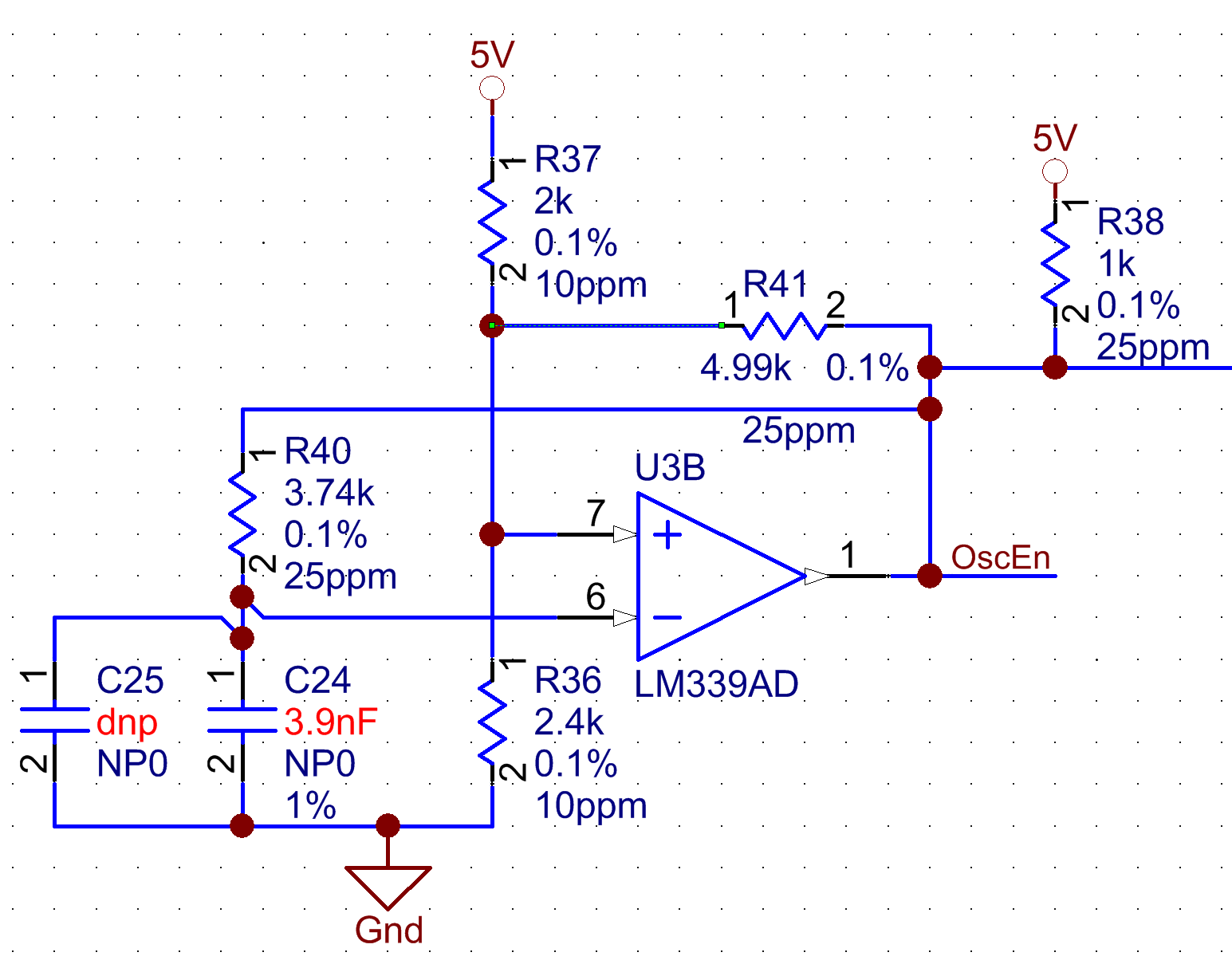We are using the LM339 as an oscillator. When a Q-tip with cold spray is touched to the top of the LM339 the oscillator frequency changes. None of the other components are being cooled. The same thing happens when the entire circuit is placed in a thermal chamber and cooled. The colder the higher the frequency. Shouldn't the resistors and capacitors dominate?
-
Ask a related question
What is a related question?A related question is a question created from another question. When the related question is created, it will be automatically linked to the original question.

